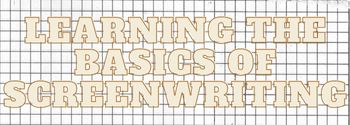Pamela: Or Virtue Rewarded by Samuel Richardson is an epistolary, 1740 novel set in the second half of 18th century. According to Christine Roulston (Virtue: Gender and the Authentic Self of Eighteenth-Century Fiction), this novel did not follow the usual romantic themes. Pamela’s blossoming beauty is a significant factor in the story. In this story, her gender and social standing in society are key factors. These were the exact reasons that made her the sexual target of the employer. This controversial tale of virtue and seduction is told through the words and thoughts of a young girl who was abused by someone with great power. This novel is a story that explores gender, with Pamela playing a major role.
Pamela’s womanhood was less important because her master, Mrs. B, was also a women. Despite their different social status, both women were equal. However, after her passing, Mr B had control over Pamela. He was not only seen as a more valuable member of society, but also a male. In this period, the early 1800s, and even today, it is argued that men are the dominant group. People would have seen his gender as more dominant, regardless of their social status, if the two were in the same social group. Not only does Pamela’s gender play a role, but the fact that Mr. B decided to dress up as a similar woman to Pamela also played a part. He decided that after many failed attempts at seducing his young, beautiful servant, he would lower himself and pretend to be one of Nan’s co-workers. This was a desperate attempt to seduce the young girl after he was rejected previously. Pamela’s disguised scene shows that she not only unclothes herself but also talks emotionally, revealing the truth of her mind before Mr. B. Her employer. Pamela, being a woman, is allowed to reflect on her feelings and undress before Mrs. Jewkes in the novel but not Mr. B. For Mr. B to be able to see Pamela’s mind and body more closely, he had to pretend to be a woman.
Pamela has a very attractive and youthful appearance. This attracts the sexual predator. The protagonist would not be so vulnerable and naive if she was not so young. Pamela’s poor family is the main reason for her stubborn chastity. Even if the reader doesn’t realize it, this immediately elevates Mr. B to Pamela’s level in their minds. Pamela puts Mr.B ahead of her, due to her lack and his wealth. She is surprised that he’d even consider a girl who looks like her. Pamela receives letters from her parents, which reveal that once their family had a very different life than what they have now. “We’re poor, yes, but we’re struggling to make ends meet. Once, as you’ll remember, it was much better.” (Pamela, Or Virtue Rewards, Letter II by Samuel Richardson, 1740). Pamela has the job of serving him as his servant. This gives him a great deal of power. Pamela knows that Mr. B is in complete control of her, especially when he kept her captive. “And how, I asked myself, as I walked on, did I become his property? What rights does he have in me that a Thief can plead for stolen goods? She asks, “Has anyone ever heard such a thing?” “This is outright rebellion, I protest!” It seems that this was one of the primary reasons why Mr. B physically approached Pamela. It is possible that Mr. B thought he had the right to do whatever he liked because he provided almost all of Pamela’s needs. This is unquestionably not the case.
In some ways, Mr.B seemed to be a villain. He looked down at people who weren’t entitled like him. He had become accustomed to getting his way, but was unable to get Pamela to accept him in the same manner. He raped Pamela, tried to force his way into her body and asked her outright to be her mistress. Pamela may have been a victim of his sarcasm, but it was clear that he was fascinated by Pamela and her refusal to take up his flirtatious approaches and offers. Pamela had an important role to play in the story. This was because her status as a slave was vital to the story. It is not a fiction novel. There were many women who found themselves in Pamela’s situation. She was only fifteen years old, but she was full of innocence and youth. She also lived in such poverty, she took on the role of a servant to support her family. She is a character full of goodwill and kindness, yet she was the victimized and manipulated by Mr. B. Virtue is rewarded, which can be envisioned at the conclusion of the novel after the couple have ‘happily wed’. It implies that her kind of personality made it lucky for her to end up with Mr.B. My opinion is that marrying a man willing to compromise your virtue wasn’t a sufficient reward for her refusal to compromise it all along.
Pamela is a strong-minded, brave woman who maintains her virtue and pride to honor herself and the poverty-stricken parents. As readers, we may have underestimated her independence. She proves this when she falls in love with a man she has treated so disrespectfully. Readers are delighted to discover that Pamela and her family, who were once poor, have no financial problems. Although it’s still depressing to hear that Pamela has found happiness with Mr. B, the reader is left feeling cheated. It is an intriguing work of socially-minded fiction, despite the unexpected and difficult to understand ending. Richardson said that he was writing a “new type of fiction” in a personal letter he sent to Aaron Hill.

